Only 66 percent of mothers in Nepal involve in ‘exclusive breast feeding’
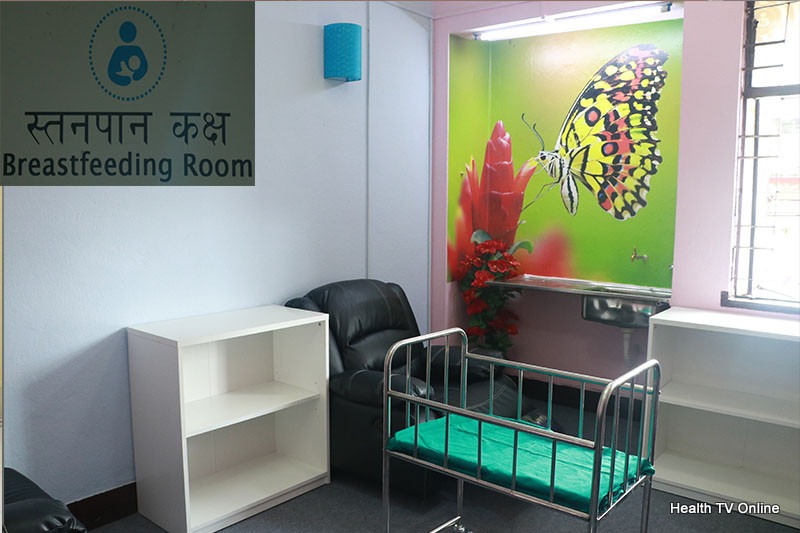
Kathmandu: Though breastfeeding provides the strongest foundation for lifelong health, a study has shown that only 66% of mothers in Nepal are involved in exclusive breast feeding. This was revealed during the inauguration of the newly established ‘breastfeeding room’ at the Department of Health Services (DoHS) on Wednesday. The room has been established on the occasion of World Breastfeeding Week.
According to the health survey of Nepal, only 55% of mothers breastfeed their child within an hour of their birth. Likewise, three among 10 mothers are found to be feeding ghee and butter in the child’s mouth during their birth. And, one percent of mothers never breastfeeds their child. Despite knowing that breastfeeding is the child’s first vaccine, 45% of mothers in Nepal do not breastfeed their child within an hour of their birth. Likewise, 34% of mothers are not involved in exclusive breastfeeding. If a child is breastfed for six months even without water or any other food items, then it is called exclusive or total breastfeeding. It is very essential for mothers to be aware that breastfeeding is the first vaccine for a child.
The ‘breastfeeding room’ was jointly inaugurated by Dr. Guna Raj Lohani, the director-general of the Department and Tomoo Hozumi, UNICEF representative to Nepal. ‘This room is targeted to the women staffs working in the department and other customers’, said Dr. Lohani. He also said that their aim is to establish 30 breastfeeding rooms in different places with the assistance from the European Union and UNICEF. ‘Right now we are aiming for 30 breastfeeding rooms however, our plan is to increase the number gradually’, he added.
Many working women in Nepal have been deprived of breastfeeding in the absence of breastfeeding rooms. With the slogan of “Breastfeeding: Foundation of Life”, this year’s World Breastfeeding Week has kicked off from Wednesday. With the motive of encouraging the child for exclusive breastfeeding for six months, the Week has been celebrated worldwide from August-1 to 7.
On the occasion of the Week the department of Health Services organized a program where experts stressed on the importance of breastfeeding for two years and the optimum nutrition a child gets from mother’s milk. The director-general of the department, Dr. Gunaraj Lohani said,’ Mother’s milk is critical to child development. A mother must be well aware about this.’
Meanwhile issuing a press statement on the occasion Dr Poonam Khetrapal Singh, WHO Regional Director for South-East Asia has said that exclusive breastfeeding for the first six months of life and continued breastfeeding up to the age of two years and beyond provides the strongest foundation for lifelong health. Dr. Singh has also urged the member states in the region to develop campaigns that educate new mothers and support them to breastfeed, including by highlighting the benefits to mothers themselves, at the same time as enhancing public buy-in. “The Region’s Member States should harness the backing provided by the recently adopted World Health Assembly Resolution on infant and young child feeding, which urges all WHO Member States to implement and/or strengthen national mechanisms for effective implementation of measures aimed at giving effect to the International Code of Marketing of Breast-milk Substitutes”, she added.
The advantages of Breastfeeding
Breastfeeding boosts up the immunity power of a child and reduces the risks of early cancer, different forms of allergies in a child, increases the intelligence level in a child and reduces the chance of postpartum depression in mothers. Similarly, it provides optimum nutrition to the child and also reduces the economic pressure in a family because only breastfeeding is enough.








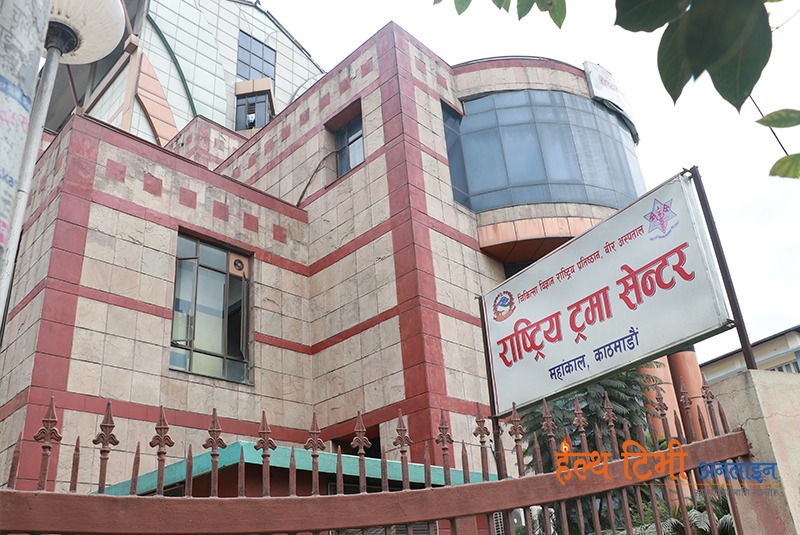
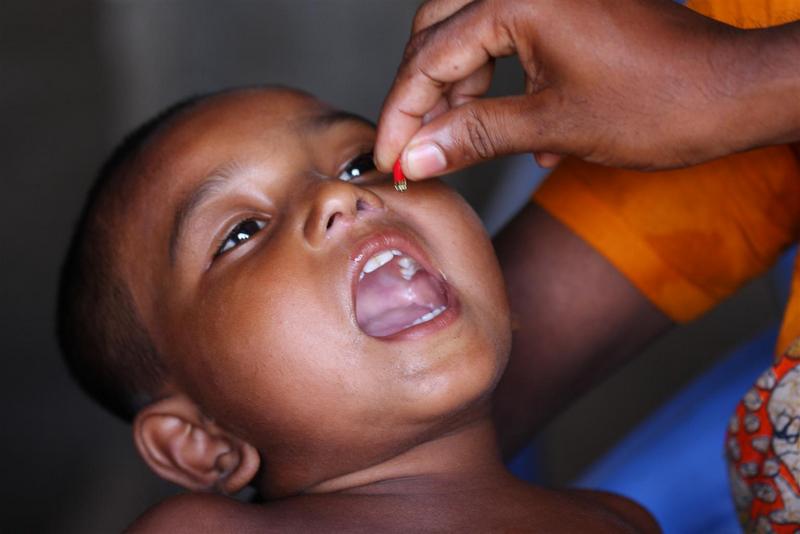
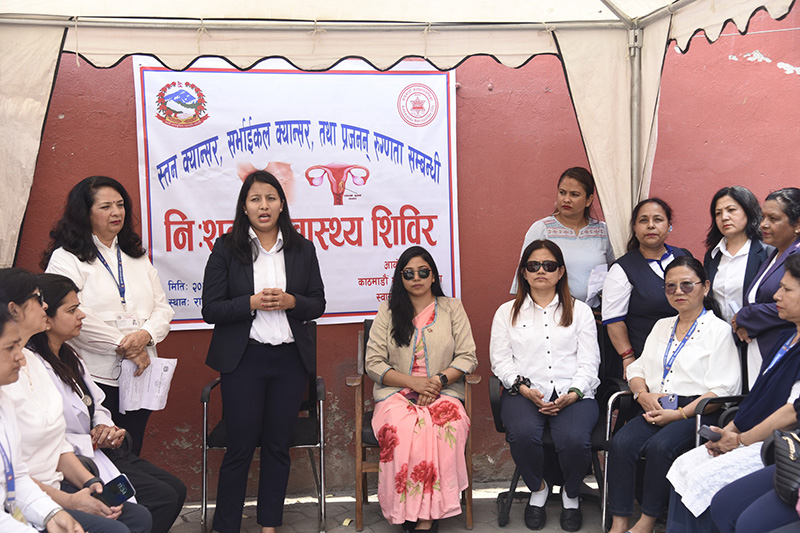
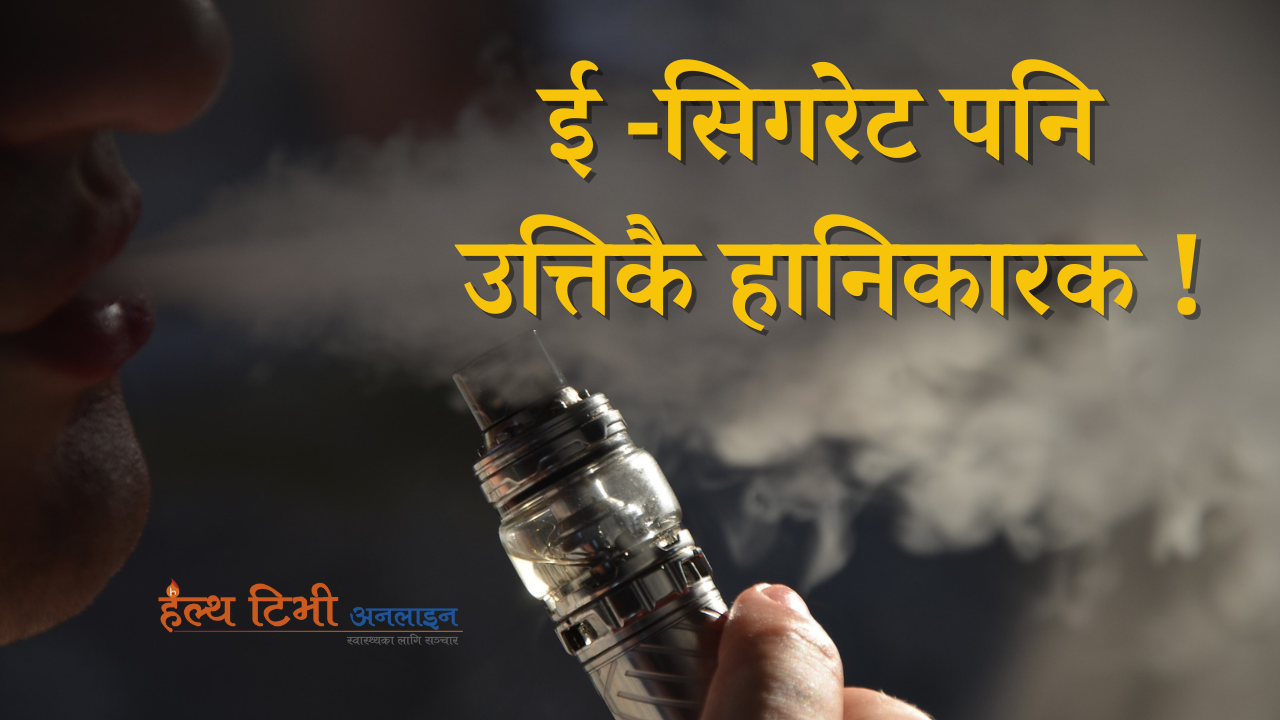
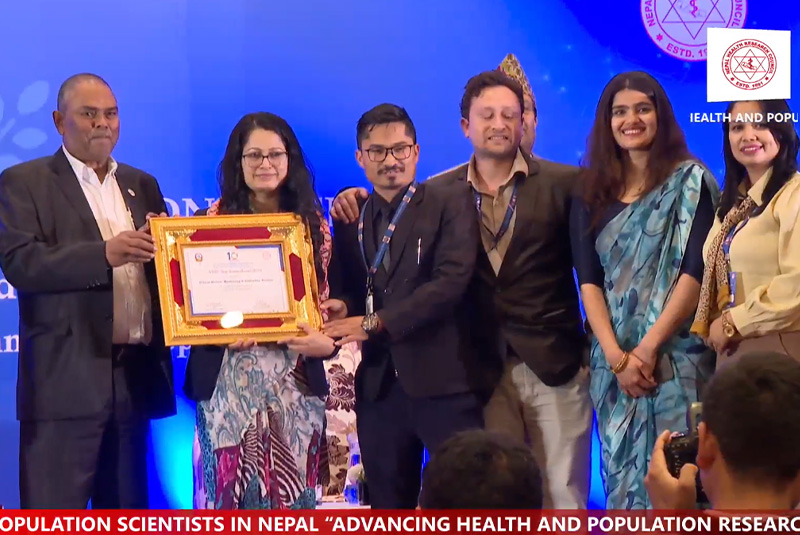


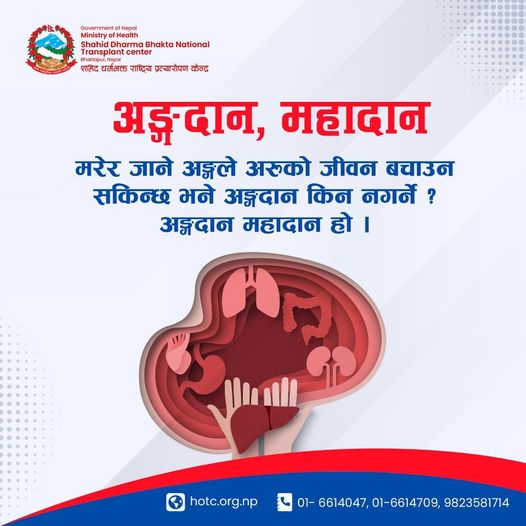
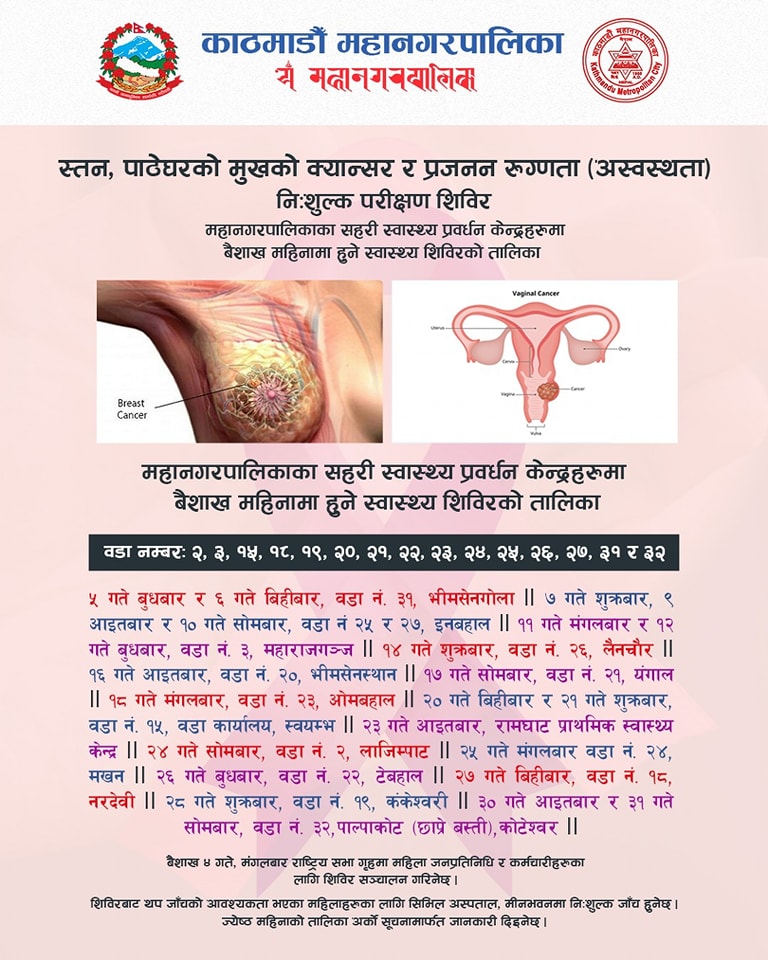
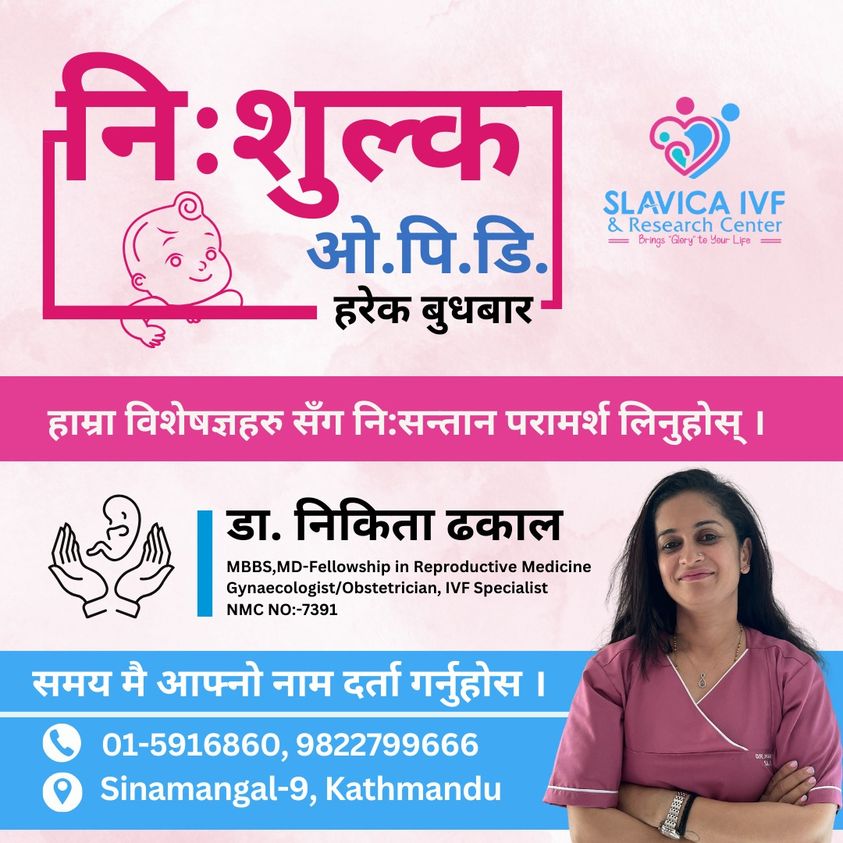
‘क्षयरोगको उपचारसँगै पोषणमा पनि ध्यान दिन जरुरी हुन्छ’
भिटामिन ए खुवाउने कार्यक्रम आज पनि
राष्ट्रिय ट्रमा सेन्टरको निमित्त मेसुमा डा प्रमोद यादव
आज र भोलि बालबालिकालाई ‘भिटामिन ए’ खुवाइँदै
काठमाडौं महानगरका वडाहरुमा आजदेखि नि:शुल्क क्यान्सर परीक्षण शिविर